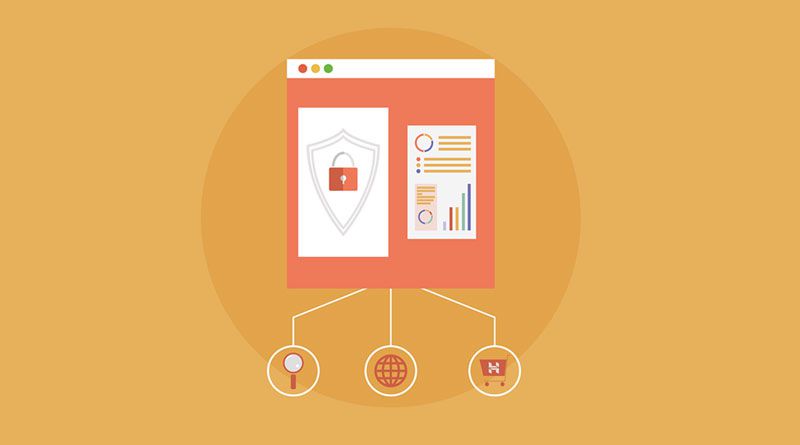A career in cyber security is promising as the US Bureau of Labor Statistics predicts a 33% job growth. To be successful, though, there are certain skills you must have and qualifications you need to hold.
While initially many businesses didn’t require a degree in cyber security, that’s changing. More and more are requiring a bachelor’s degree, but that’s not the only thing you need to succeed in the world of cyber security.
You don’t need to be a master of every aspect of cyber security, but having a good handle on specific skills and basic knowledge in most areas will help you start on the right foot. You may choose to specialize in one area or another and that’s perfectly fine too, but here are the top cyber security skills you must have to be considered a qualified cyber security professional in 2022.
#1. Knowledge of Operating Systems
Every operating system will be different so there’s no real way to master them all, but you can learn how to intuitively navigate and use any operating system that’s thrown your way. With in-depth knowledge of popular operating systems like Windows, Mac OS, and Linux, you’ll be better prepared to take on a less common operating system.
Take the time to learn the various operating systems that are used. Even if you have never worked with a certain system in the workplace, it’s worth knowing. You never know when it might come in handy.
#2. Risk Assessment
This is one of the most important skills you can have as a cyber security professional. Being able to carry out and write risk assessments is vital for a career in cyber security as it will drive a lot of your work.
Risk assessments give you a clearer picture of your system’s vulnerabilities and where a system may fail. With it in hand, you’ll be able to effectively plan and design a security system to combat potential threats and strengthen weak areas.
You’ll be constantly performing risk assessments and writing statements, so you must understand how to do so. Performing one assessment won’t be enough, either. You’ll need to assess and update a system routinely, so be prepared to do the same thing for the same system several times per year.
#3. Understanding of Cryptography and Kerberos
Kerberos is a network that’s used to approve only certain users. It’s a security protocol that was created by MIT and uses cryptography which is why a knowledge of both Kerberos and cryptography go hand in hand. With cryptography, Kerberos allows authorized users to access a server and then encrypts the communication between the user and the server.
It’s free and a great resource to use, so learning how to implement it is worth the time and effort.
#4. Penetration Testing

Another routine assessment that you’ll perform as a cyber security professional is penetration testing. It’s often tied in directly with risk assessment, though they aren’t the same. You’ll need to be able to perform both, so we’ve included them here as two separate skills to have.
In penetration testing, you’ll breach the system as a hacker would and look for any weaknesses. This is sometimes referred to as ethical hacking and some companies may choose to hire professional ethical hackers to look at their system from an outsider’s perspective. It’s still a good idea to learn penetration testing, though, as it is one of the main tasks you’ll complete.
#5. Familiarity with the Cloud
Many businesses are switching to cloud computing which means you’ll also need to familiarize yourself with cloud security. Unfortunately, cloud computing uses different security measures so you’ll need to learn them separately from traditional cyber security protocols.
Both the cloud and traditional systems follow the same security principles, but the way they’re implemented will be different. With the cloud, you’ll need to become familiar with SAML, OAuth, and WS-Federation as authentication protocols. Being familiar with Azure, AWS, and other cloud-based operating systems is also a vital skill to have.
#6. Digital Forensics
Hacks are inevitable, even with the best security protocols in place. When they do occur, though, you shouldn’t just panic and immediately dive into fixing the security system. Instead, you should turn to digital forensics.
Digital forensics focuses on recovering data that’s been lost, identifying where the hack came from, assessing vulnerabilities, and improving security based on the attack. As a cyber security professional, you don’t need to have a vast understanding of digital forensics, but you should be familiar with the practice. It’s a specialty that some people choose to focus on, though not a requirement.
#7. Artificial Intelligence
Artificial intelligence is gaining ground in the business and cyber security worlds. It can be a huge help to security protocols and improve your system through scale, intelligence, and automation. When used with machine learning, AI can create a more robust security system that can defend itself against threats.
Being at least moderately familiar with AI technology is a necessity. You don’t need to be an expert in the field, but knowing how cyber security can benefit from AI as well as the basics of implementing it can give you a foot up in the professional cyber security world.
#8. Problem Solving
Unlike the other skills above, this is a soft skill. There are numerous soft skills you need for cyber security, but problem-solving is one of the most important.
Much of the time, the solution to a problem may not be obvious. Rather than get frustrated or give up on the problem, cyber security professionals need to have the endurance and problem-solving skills that are necessary to find a solution on time.
Final Word
There are a lot of hard skills you need to succeed in cyber security, but there are also plenty of soft skills that you should master as well. Providing high-quality, professional service requires more than just a diploma or a certification. By working on improving both soft and hard skills, you’ll find yourself enjoying your work and having more success.

Namaste UI collaborates closely with clients to develop tailored guest posting strategies that align with their unique goals and target audiences. Their commitment to delivering high-quality, niche-specific content ensures that each guest post not only meets but exceeds the expectations of both clients and the hosting platforms. Connect with us on social media for the latest updates on guest posting trends, outreach strategies, and digital marketing tips. For any types of guest posting services, contact us on info[at]namasteui.com.

